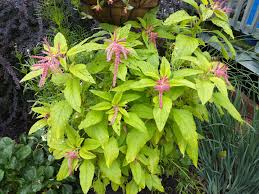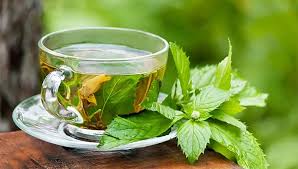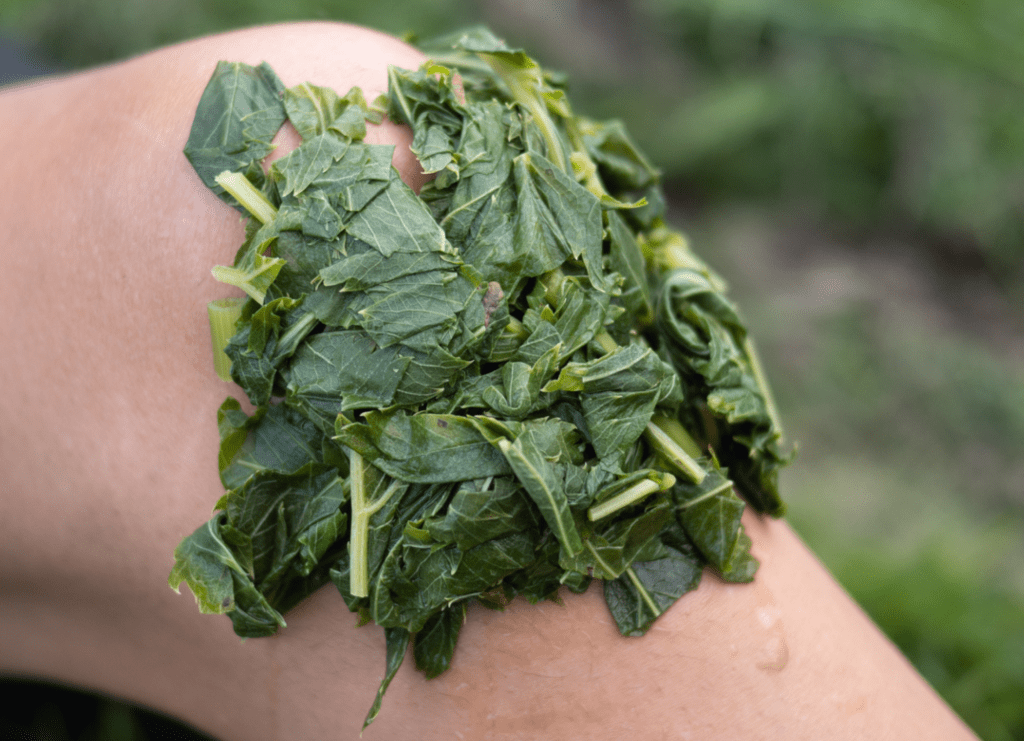Nunum leaves, often referred to as African basil (scientifically known as Ocimum gratissimum), are valued for their unique aroma, flavorful taste, and impressive health benefits. This leafy herb has been a staple in various traditional African cuisines and herbal remedies, known not only for enhancing food flavors but also for its therapeutic properties.
Widely grown across many tropical regions, nunum leaves are frequently used in cooking, teas, and natural remedies to support overall health and wellness. They are rich in essential vitamins, minerals, and antioxidants that contribute to their impressive nutritional profile.
A key element in understanding the value of nunum leaves is appreciating their high content of vitamins and minerals. Nunum leaves are packed with vitamin A, which is essential for maintaining eye health, skin vitality, and immune function. This vitamin plays a vital role in cellular growth, particularly for maintaining the health of epithelial tissues that protect internal organs. The health benefits of nunum leaves extend to skin care as well, with the vitamin A content helping to promote a clearer, brighter complexion.
Additionally, vitamin A’s antioxidant properties help fight free radicals, reducing the risk of cell damage and slowing down the aging process. Vitamin C, another major nutrient in nunum leaves, is essential for the maintenance of skin, blood vessels, bones, and cartilage. This vitamin acts as a powerful antioxidant that strengthens the immune system, supports wound healing, and enhances iron absorption. Regular consumption of nunum leaves can provide a significant amount of this vitamin, which is crucial for overall health, particularly in protecting the body against infections and illnesses.
People often turn to nunum leaves for their health benefits, especially during cold and flu seasons, as the high vitamin C content aids in boosting immunity. One of the less commonly known benefits of nunum leaves is their vitamin K content. This vitamin plays a crucial role in blood clotting and bone health. Vitamin K is particularly important for maintaining strong bones, as it supports bone mineral density, reducing the risk of fractures and osteoporosis.
For individuals looking to enhance their bone health naturally, incorporating nunum leaves into their diet can be highly beneficial. This leafy herb serves as an excellent dietary source of vitamin K, promoting skeletal health and helping to prevent bone deterioration with age.
Iron is another mineral found abundantly in nunum leaves, which is vital for forming hemoglobin – the protein responsible for transporting oxygen throughout the body. Adequate iron intake is essential for energy production, supporting cognitive function, and maintaining healthy muscles. Nunum leaves’ iron content makes them especially beneficial for individuals at risk of iron deficiency, such as women of childbearing age. By including nunum leaves in meals, one can naturally enhance iron levels, reducing the risk of fatigue and anemia.
Potassium is yet another essential mineral present in nunum leaves, known for its role in regulating blood pressure. Potassium works with sodium to maintain fluid balance in cells, supporting proper cardiovascular function and reducing strain on the heart. This mineral is beneficial for those looking to manage hypertension or improve heart health, as it helps prevent high blood pressure and protects against heart disease. Regular consumption of nunum leaves can, therefore, contribute to maintaining a healthy heart and cardiovascular system, underscoring the comprehensive health benefits they offer.
The calcium content in nunum leaves is also noteworthy, particularly for supporting bone and dental health. Calcium is essential for bone development and maintaining the structural integrity of teeth, muscles, and nerves. This mineral, combined with vitamin K in nunum leaves, contributes to stronger bones, making this leafy green an important addition for those concerned with long-term bone health.
Many cultures utilize nunum leaves for their health benefits, incorporating them into both meals and traditional medicinal practices as a natural source of calcium to maintain bone density and prevent issues such as osteoporosis.
Beyond these vitamins and minerals, nunum leaves also contain valuable antioxidants, which play a key role in protecting the body from oxidative stress. Antioxidants are critical in neutralizing free radicals, unstable molecules that can cause cell damage and contribute to the development of chronic diseases, such as cancer, diabetes, and heart disease. By incorporating nunum leaves into the diet, individuals benefit from a natural source of antioxidants, which helps reduce inflammation and supports overall health.
In traditional medicine, nunum leaves are often used for their purported anti-inflammatory and antimicrobial properties. These properties make nunum leaves an excellent choice for treating minor wounds and infections. The health benefits of nunum leaves extend to promoting respiratory health, as they are sometimes used in teas to alleviate coughs, colds, and respiratory infections. The natural compounds within the leaves are thought to help clear airways, making them a useful home remedy for congestion and related respiratory issues.
Moreover, nunum leaves have been associated with digestive health. In some cultures, they are used as a natural remedy for digestive discomfort, including gas, bloating, and indigestion. The compounds in nunum leaves aid in stimulating the production of digestive enzymes, which facilitates better breakdown and absorption of nutrients. For individuals looking to improve digestion and prevent gastrointestinal issues, nunum leaves offer a natural, gentle approach to digestive wellness. These leaves can be brewed into a soothing tea or added to meals to provide these digestive benefits.
Nunum leaves also contain magnesium, an essential mineral known for its role in regulating muscle and nerve function. Magnesium contributes to maintaining normal blood pressure, controlling blood sugar levels, and supporting a steady heartbeat. For individuals with muscle cramps or tension, the magnesium in nunum leaves can provide natural relief. This mineral’s calming effect on the muscles is another reason why nunum leaves are valued in traditional health practices, as they help alleviate physical discomfort and promote relaxation.
In addition to these physical health benefits, nunum leaves are culturally significant in many regions, often linked with wellness rituals and traditional remedies. For centuries, they have been revered for their ability to support both physical and mental health, offering a natural way to address health concerns without reliance on synthetic treatments. Their aromatic profile is not only pleasing to the senses but also contributes to their therapeutic value, as the scent is believed to have calming and mood-enhancing effects.
Health Benefits of Nunum Leaves

1. Respiratory Health: One of the most common uses of nunum in traditional medicine is for respiratory health. People have long used it to treat coughs, colds, and respiratory infections due to its natural anti-inflammatory and antimicrobial properties. Drinking tea made from the leaves or inhaling steam from a boiling mixture of the leaves and water is believed to clear airways, reduce congestion, and ease breathing. It is also thought to be effective for sore throats and sinusitis.
2. Digestive Health and Relief: Nunum has carminative properties, meaning it helps relieve gas and bloating. This herb is often used as a remedy for digestive issues such as indigestion, cramping, and nausea. Drinking a tea made from the leaves or chewing them directly can ease stomach discomfort. The leaves contain compounds that stimulate digestive enzymes, aiding digestion and promoting a healthier gastrointestinal tract.
3. Wound Healing: Thanks to its antimicrobial properties, nunum is often used to treat minor cuts, wounds, and skin infections. In many traditional remedies, crushed leaves are applied directly to wounds to aid in healing and prevent infection. The antiseptic nature of the leaves helps reduce the risk of bacterial contamination while promoting faster skin recovery.
4. Anti-inflammatory and Pain Relief: The natural anti-inflammatory properties of nunum make it a go-to remedy for pain and inflammation. It is often used for joint pain, muscle aches, and arthritis in traditional settings. By applying a warm poultice to the affected area, individuals can experience relief from inflammation and pain.
5. Immune System Boost: The leaves contain a high concentration of vitamin C and antioxidants, both of which are essential for maintaining a healthy immune system. Regular consumption of nunum tea or incorporating the leaves into meals is believed to help protect the body against infections and strengthen its natural defenses.
6. Fever Reduction: Traditionally, nunum has been used to reduce fevers. The leaves have mild diaphoretic properties, meaning they can induce sweating, which may help lower body temperature.
7. Mental Clarity and Calmness: In certain cultures, nunum is used for its mental and emotional effects. When brewed as a tea, it has a calming and relaxing impact, often used to relieve anxiety and stress. The aroma alone is said to promote relaxation.

8. Diabetes Management: While not a substitute for medical treatment, nunum is sometimes used as an adjunct in traditional diabetes management. Certain compounds in the leaves are thought to help regulate blood sugar levels and improve insulin sensitivity.
9. Anti-Parasitic and Antifungal Use: In some traditional settings, nunum is used for its antifungal and anti-parasitic properties. It has been employed as a natural remedy for combating fungal infections and intestinal parasites.
10. Enhancing Skin Health: The leaves are also known for their benefits to the skin. Traditional remedies include using them in facial treatments to improve skin tone and clarity. The antioxidants present help to rejuvenate the skin, while antimicrobial properties address common skin issues such as acne.
11. Detoxification: Nunum has been used for its detoxifying properties in many cultures, as it is believed to help cleanse the body by promoting the removal of toxins from the liver and bloodstream.
12. Oral Health and Fresh Breath: Nunum has traditionally been used for maintaining oral hygiene and fresh breath. The leaves contain natural compounds that fight bacteria in the mouth.
13. Weight Management Support: As a mild diuretic and digestive aid, nunum has also been used to support weight management by aiding digestion and helping eliminate excess water retention.
Read Also: Things You Should Know About Medicinal Plants
How to Prepare and Use Nunum Leaves for Maximum Benefits

Preparing and using Nunum leaves effectively can unlock a range of health benefits, from improved digestion to enhanced immunity. Known scientifically as Ocimum gratissimum, Nunum leaves, also known as African basil, are widely respected in herbal medicine.
Preparing Nunum Leaves for Herbal Tea
One of the most popular ways to consume Nunum leaves is in the form of tea.
1. Tea Preparation: Boil a cup of water, add about five to ten Nunum leaves, and simmer for five to seven minutes.
2. Straining and Consumption: Strain and drink warm, once or twice a day. Add honey or lemon for flavor.
Preparing Nunum Leaf Oil for Skin Applications
1. Infusion Process: Place washed leaves in a jar, cover with carrier oil, and seal.
2. Infusion Duration: Store in a warm place for two weeks, shaking daily.
3. Straining and Storage: Strain and store in a dark bottle. Apply to skin for irritations or wounds.
Using Nunum Leaves for Respiratory Relief
1. Steam Inhalation: Boil water with leaves, then inhale steam under a towel for 5-10 minutes.
Creating a Nunum Leaf Poultice for Pain Relief
1. Preparation of Poultice: Crush fresh leaves into a paste.
2. Application: Apply to affected area, cover, and leave for 20-30 minutes.
Adding Nunum Leaves to Daily Meals
Use chopped fresh leaves in salads, soups, stews, or sauces for flavor and nutrients.
Dosage and Frequency: 1-2 cups tea daily; apply oil/poultice 1-2 times daily.
Maximizing Benefits: Prefer fresh leaves for potency.
Safety and Considerations: Generally safe; consult a doctor if pregnant, nursing, or on medications. Patch test for topical use.
Read Also: History and Uses of Herbal Remedies
Frequently Asked Questions on the Uses and Benefits of Nunum Leaves

1. What are Nunum leaves, and where are they commonly found?
Nunum leaves, also known as Ocimum gratissimum or African basil, are a type of basil native to Africa and parts of Asia. They are commonly used in traditional medicine, cooking, and religious practices in various cultures.
2. What are the main health benefits of Nunum leaves?
Nunum leaves are known for their antimicrobial, anti-inflammatory, and antioxidant properties. They can help with digestive issues, boost immune function, aid in respiratory health, and may relieve pain from sore muscles and joints.
3. How can Nunum leaves be used to treat respiratory conditions?
One of the most effective ways is through steam inhalation: boil fresh leaves in water and inhale the steam to clear nasal passages and reduce congestion.
4. Can Nunum leaves be used on the skin?
Yes, as an infused oil or poultice. Their antibacterial and anti-inflammatory properties make them effective for rashes, cuts, and minor burns.
5. How should Nunum leaf tea be prepared, and what are its benefits?
Steep a few fresh or dried leaves in boiling water for 5-7 minutes. The tea supports digestion, relieves cough, and enhances relaxation. Drink once or twice daily.
6. Are there any side effects of using Nunum leaves?
Generally safe, but some may experience skin irritation topically. Use in moderation and consult a healthcare professional if pregnant, nursing, or with specific conditions.
7. Can Nunum leaves help with digestive problems?
Yes, traditionally used to support digestion. Nunum tea can alleviate bloating, gas, and indigestion due to its soothing properties.
8. What is the best way to store Nunum leaves for long-term use?
Fresh leaves are best used immediately, but dry and store in an airtight container in a cool, dark place for several months to retain benefits for teas and infusions.
9. Is Nunum safe for children or pregnant women?
While traditionally used, consult a healthcare provider before use in children, during pregnancy, or breastfeeding due to limited clinical data on safety.
10. Can Nunum leaves help with blood pressure or diabetes?
Some traditional uses suggest benefits for regulating blood pressure (via potassium) and blood sugar, but it should not replace medical treatment—consult a doctor.
Do you have any questions, suggestions, or contributions? If so, please feel free to use the comment box below to share your thoughts. We also encourage you to kindly share this information with others who might benefit from it. Since we can’t reach everyone at once, we truly appreciate your help in spreading the word. Thank you very much for your support and for sharing!
Disclaimer: This article is for educational and informational purposes only. The health benefits described are based on scientific research and traditional knowledge. They ayre not a substitute for professional medical advice, diagnosis, or treatment. Always consult a healthcare professional before using any herb or natural remedy for medical purposes.

